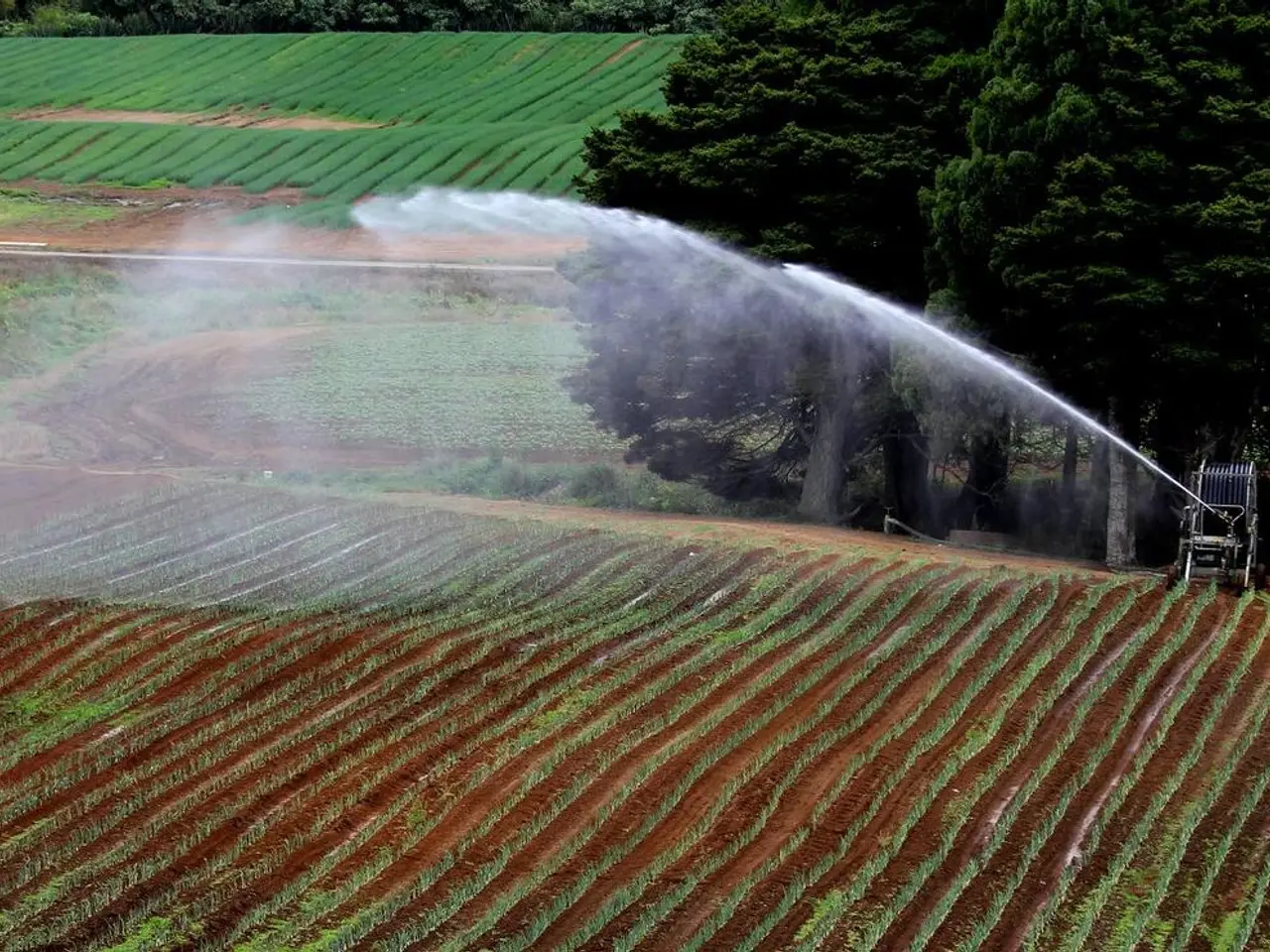In the Countryside: Caputo expresses desire to eliminate long-term policies that have caused considerable harm to rural areas.
In a significant move, the Argentine government, under President Javier Milei, has announced a hike in export taxes on key agricultural products, effective from July 1, 2025. The Minister of Economy, Luis Caputo, revealed these changes during his presentation at the Rural Exhibition.
The export tax on soybeans will rise from 26% to 33%, while the export taxes on corn and sorghum will increase from 9.5% to 12%. The export tax on sunflower oil will increase from 5.5% to 7%, but taxes on wheat and barley remain at 9.5%, and the export tax on wheat flour will decrease to 5.5%.
These policy shifts mark a reversal of earlier reductions in these taxes, aimed at boosting fiscal revenues and meeting International Monetary Fund (IMF) obligations. The announcements have resulted in a surge in pre-July sales, with farmers and exporters rushing to export agricultural goods before the higher tax rates take effect. For instance, soybean sales in June 2025 doubled compared to the previous year, reaching 4.71 million tonnes and generating approximately $4 billion in foreign exchange.
However, this short-term rush has reshaped global commodity flows, raising concerns about a subsequent slowdown in exports and pressures on farmers’ profitability. Caputo has warned, "I don’t want to spoil anything because the president will make the announcements."
Meanwhile, the vice president of La Rural has expressed a desire for change or reform, similar to Caputo's statements about the countryside being a priority for this government. The vice president's statement was made in the context of the Rural Exhibition, and it suggests potential changes in government policy, such as significant concessions regarding taxes or restrictions.
In a related development, the International Monetary Fund (IMF) has advanced the latest review of the Argentine program, with news expected in the near future. Additionally, the Gas Transporter Sur's license has been extended for 20 years. These announcements occurred in a context marked by expectations ahead of the president's announcements on Saturday.
Caputo has emphasized that the countryside is a priority for this government and reiterated, "We have always said that we want to remove the export taxes that have done so much damage to the countryside." He met with Nicolás Pino, president of the Argentine Rural Society, to discuss these matters further. The minister stated, "the countryside always responds and we try to show that we do too."
In conclusion, the Argentine government's key announcements include:
- Increasing soybean export tax from 26% to 33% - Raising corn and sorghum export taxes from 9.5% to 12% - Increasing sunflower oil export tax from 5.5% to 7% - Maintaining wheat and barley export taxes at 9.5% - Lowering the wheat flour export tax to 5.5%
These measures reflect the administration’s strategy to increase fiscal reserves but pose risks to the agricultural sector by reducing net income for producers and potentially disrupting export flows after July 2025.
A French financier, intrigued by the recent economic policies in Argentina, might express interest in the upcoming changes in the business environment, specifically the increased export taxes on soybeans, corn, and sorghum, and the decreased export tax on wheat flour, as announced by the Argentine government. In light of the vice president of La Rural's desire for policy changes or reforms, there might be potential for strategic investments in the agricultural sector, with the intention of mitigating the risks associated with these tax increases and the anticipated slowdown in exports after July 2025.




